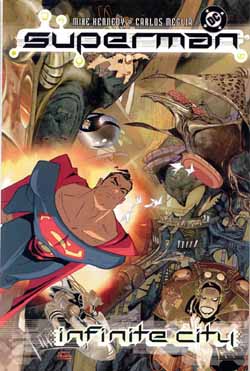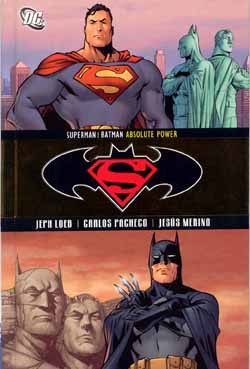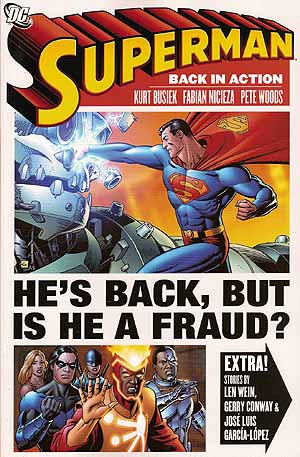
By Mike Kennedy & Carlos Meglia
(DC Comics) ISBN 1-84576-176-6
This original graphic novel is a sadly lightweight piece of fluff that sees investigative reporters Mr and Mrs Kent tracking down the source of a devastating super-gun, only to be sucked into a strange time-warped dimension. There they become embroiled in a civil war between greedy, slimy, power hungry industrialist Jesden Tyme (yes – oh, ha ha – indeed) and the robotic Mayor, who just happens to be a download of the consciousness of Superman’s father, Jor-El.
Lavishly illustrated in the manner of an animated feature film, the stylizations of Carlos Meglia may not be to everyone’s taste. The plot from Mike Kennedy (Lone Wolf 2100, Star Wars: Underworld and the sadly under-appreciated Ghost/Batgirl, among others) lacks any punch or originality of its own, relying on the clichéd and oft-rehashed. However, as is often the case in these days of sound-bite culture, the dialogue is sharp and effective, and some of the interplay between Lois and Clark is delightful. Perhaps the comic book powers-that-be have returned to an old philosophy, feeling that readers aren’t consumers for life but only read funny-books for a brief time before graduating to DVDs and computer games or regressing to those old fashioned book thingies.
Still, a new graphic novel is a rare enough investment in these days of translated Manga and album editions of almost anything that reaches 6 issues in its own monthly comic, so perhaps we should just shut up and support the gesture.
© 2005 DC Comics. All Rights Reserved.



